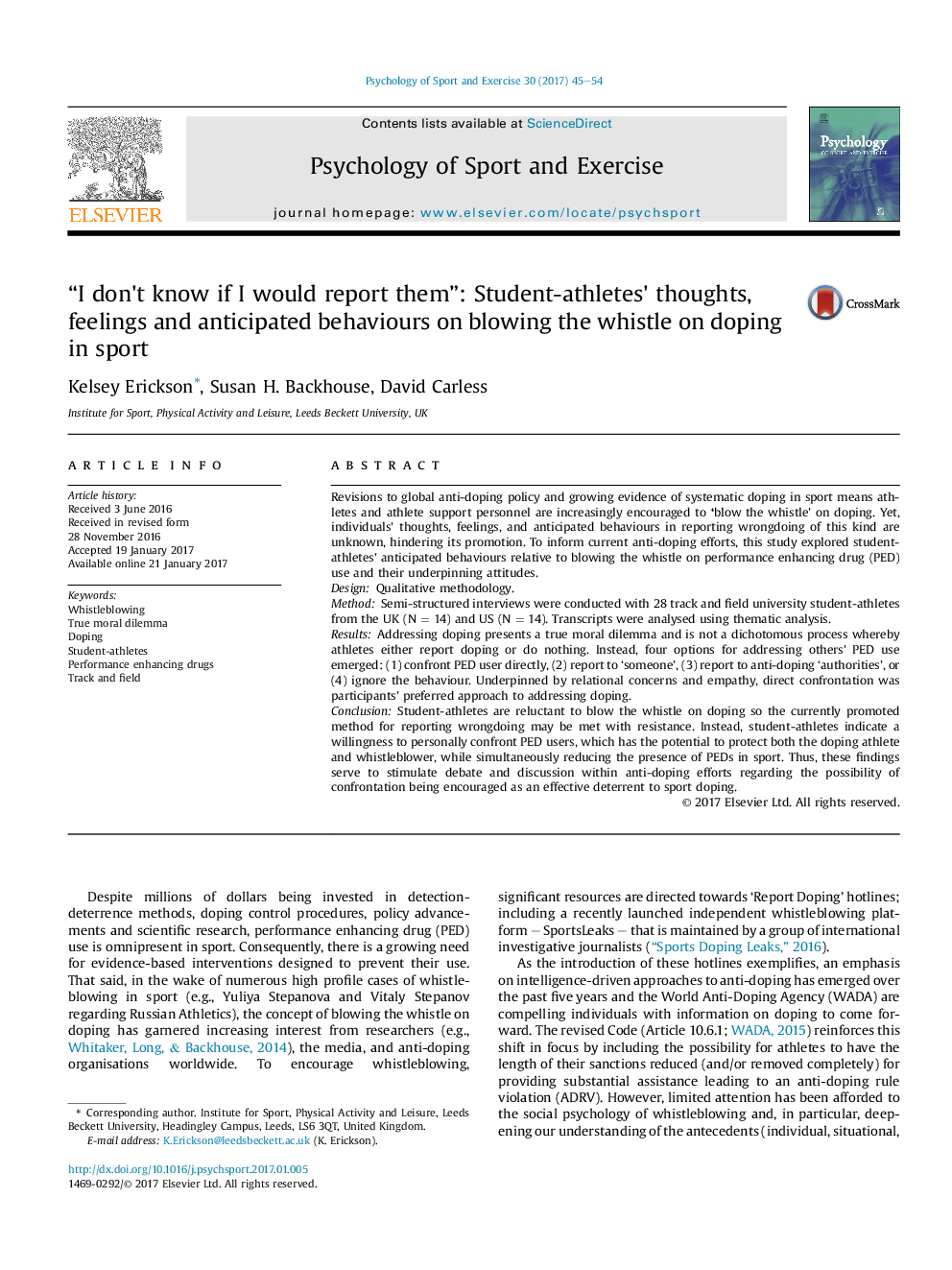| کد مقاله | کد نشریه | سال انتشار | مقاله انگلیسی | نسخه تمام متن |
|---|---|---|---|---|
| 5036441 | 1472097 | 2017 | 10 صفحه PDF | دانلود رایگان |

- Current intelligence-led anti-doping efforts encourage and rely on whistleblowing.
- UK and US track and field student-athletes were reluctant to whistleblow on doping.
- Directly confronting doping athletes is the preferred approach to addressing doping.
- Direct confrontation presents a community-based approach to deterring doping.
- The complexity of blowing the whistle on doping in sport is illuminated.
Revisions to global anti-doping policy and growing evidence of systematic doping in sport means athletes and athlete support personnel are increasingly encouraged to 'blow the whistle' on doping. Yet, individuals' thoughts, feelings, and anticipated behaviours in reporting wrongdoing of this kind are unknown, hindering its promotion. To inform current anti-doping efforts, this study explored student-athletes' anticipated behaviours relative to blowing the whistle on performance enhancing drug (PED) use and their underpinning attitudes.DesignQualitative methodology.MethodSemi-structured interviews were conducted with 28 track and field university student-athletes from the UK (NÂ =Â 14) and US (NÂ =Â 14). Transcripts were analysed using thematic analysis.ResultsAddressing doping presents a true moral dilemma and is not a dichotomous process whereby athletes either report doping or do nothing. Instead, four options for addressing others' PED use emerged: (1) confront PED user directly, (2) report to 'someone', (3) report to anti-doping 'authorities', or (4) ignore the behaviour. Underpinned by relational concerns and empathy, direct confrontation was participants' preferred approach to addressing doping.ConclusionStudent-athletes are reluctant to blow the whistle on doping so the currently promoted method for reporting wrongdoing may be met with resistance. Instead, student-athletes indicate a willingness to personally confront PED users, which has the potential to protect both the doping athlete and whistleblower, while simultaneously reducing the presence of PEDs in sport. Thus, these findings serve to stimulate debate and discussion within anti-doping efforts regarding the possibility of confrontation being encouraged as an effective deterrent to sport doping.
Journal: Psychology of Sport and Exercise - Volume 30, May 2017, Pages 45-54